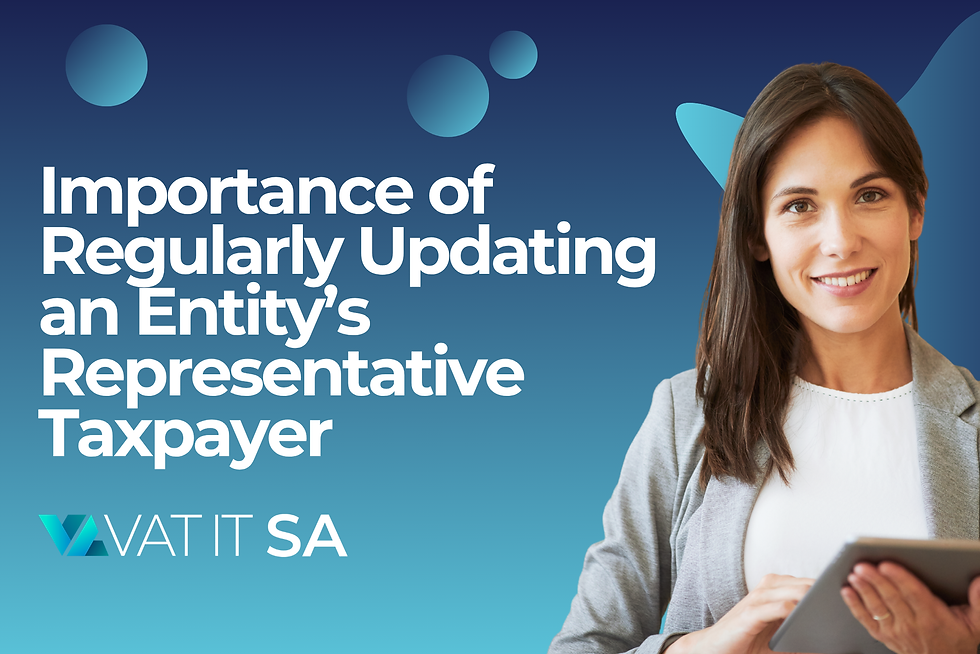The impact of Covid19 on late submission of objections and appeals
- VATIT South Africa
- Apr 27, 2020
- 2 min read
Updated: Jun 14, 2022

Will SARS still consider a late submission of an objection or appeal due to Covid19?
The various restrictions imposed by the national lockdown and the decision by many businesses to request employees to work from home in response to the Covid19 outbreak will have a direct impact on the effective and timeous submission of disputes to SARS in the form of objections and appeals.
Taxpayers aggrieved by an assessment; or by certain decisions made under the Tax Administration Act (TAA) or any of the Acts administrated by SARS may object to and appeal against those assessments or decisions. The period for lodging an objection or appeal under the TAA is generally limited to 30 business days from the date of the assessment or conclusion of the objection by SARS. A senior SARS official may, within prescribed limits, extend the period prescribed in the rules within which an objection or appeal must be lodged.
Further section 104(5) TAA places a limitation on the extension of time that a senior SARS official may grant for the lodging of an objection. The general extension of the period for lodging an objection cannot exceed a further 30 business days unless a senior SARS official is satisfied that exceptional circumstances exist which gave rise to the delay.
The term “exceptional circumstances” is not defined for the purposes of the TAA. It is therefore required to consider its ordinary grammatical meaning, bearing in mind the context in which it appears and the purpose to which it is directed. The “exceptional circumstances” referred to must thus be of such a nature that it would be considered as being something out of the ordinary and of an unusual nature.
SARS Interpretation Note 15 provides that exceptional circumstances may include, a natural or human-made disaster; a civil disturbance or disruption in services; or a serious illness or accident. Therefore, the declaration of a National State of Disaster in terms of the Disaster Management Act 2002 (“DMA”) or the serious illness of an employee responsible for the drafting and submission of the objection or appeal, may be considered as exceptional circumstances.
It should be noted that the mere existence of one of these factors may not be sufficient and that the Taxpayer would need to demonstrate that the factor was indeed the reason for the delay in submitting its dispute.
Contributed by Nico Grobler, VAT Manager, VAT IT SA.



Comments